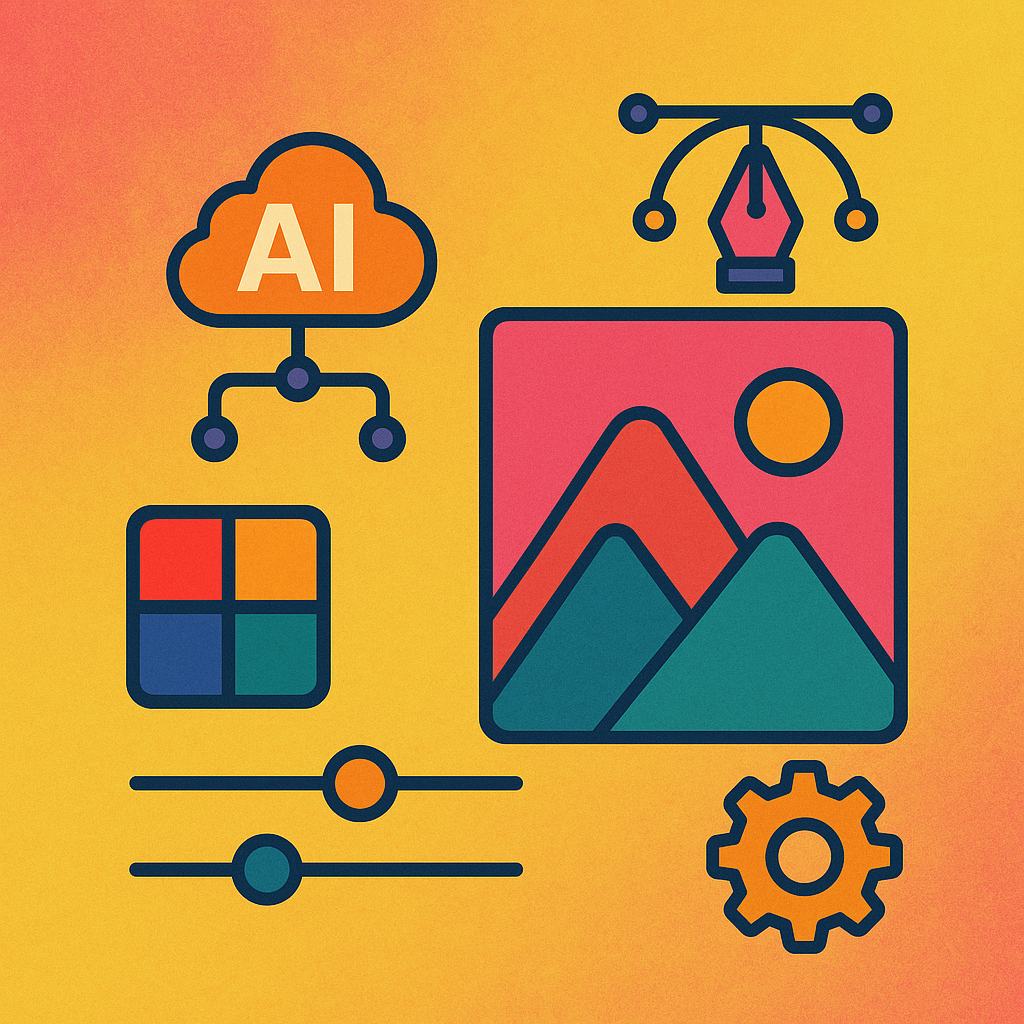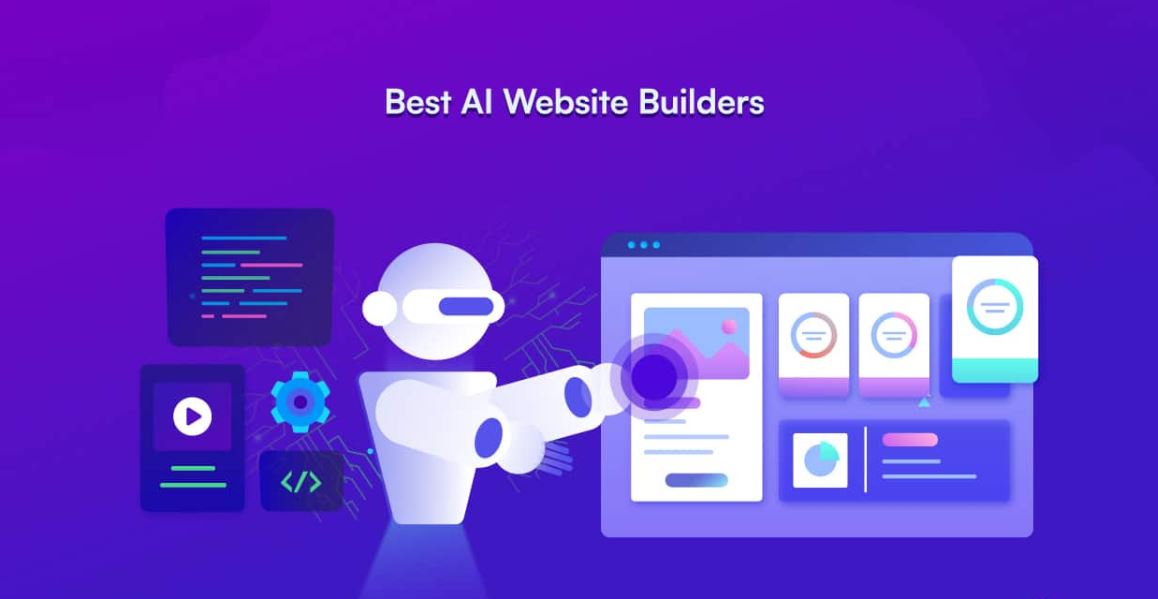Are you a researcher, student, or professional drowning in a sea of academic papers, struggling to craft a literature review? The good news is that artificial intelligence (AI) is here to transform the way you approach this daunting task. AI assisted literature review tools are designed to save time, boost accuracy, and simplify complex research workflows. In this comprehensive guide, we’ll explore the top 12 literature review tools for 2025, each offering unique features to make your research process smoother and more efficient. Let’s dive in!
Elicit
Elicit is a powerful AI-driven research assistant designed to automate literature reviews and research workflows using advanced language models. This assisted literature review tool helps researchers quickly find, summarize, and extract key information from academic papers, saving hours of manual work.
Why it’s great: With access to over 125 million papers, Elicit simplifies finding, summarizing, and extracting data from research articles.
How to use it: Enter your research question or topic, and Elicit will search for relevant papers, summarize key takeaways, and even pull out specific data points tailored to your needs.
Key features:
- Searches beyond exact keyword matches.
- Summarizes papers based on your question.
- Extracts tables, figures, and insights effortlessly.
Best for: Researchers needing a broad, automated overview of literature across disciplines.
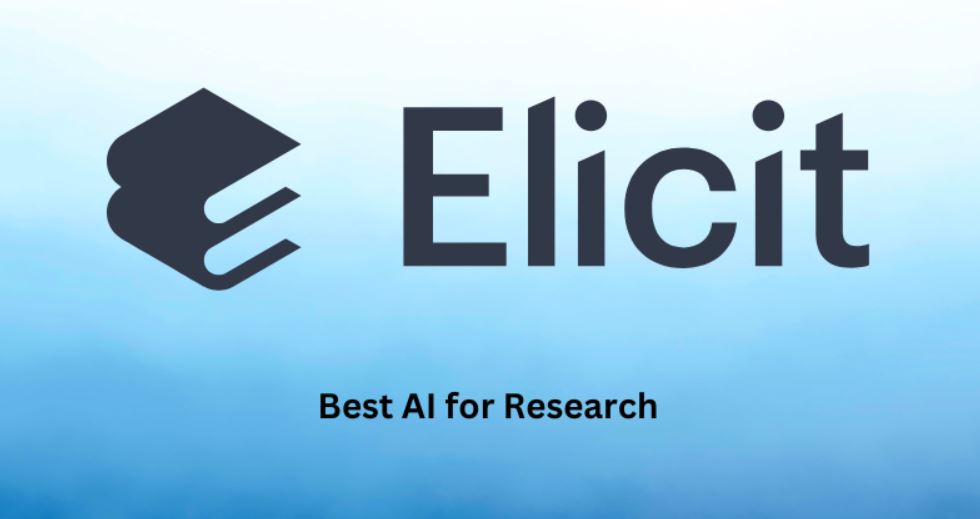
Rayyan
Rayyan is an AI assisted literature review tool built specifically for systematic literature reviews and team collaboration. It makes the review process faster and smarter by learning from your tagging and selection patterns
Why it’s great: It learns from your decisions, making the review process faster and more intuitive over time.
How to use it: Import your references, tag them, and let Rayyan’s AI suggest relevant papers while you collaborate with your team remotely.
Key features:
- AI-powered filtering and suggestions.
- Mobile app for on-the-go access.
- Scalable tools for large reviews.
Best for: Teams conducting evidence-based research or systematic reviews.
Rayyan’s transparent methodology aligns with academic rigor, making it a go-to for peer-reviewed studies.
Seamless
Seamless is an AI-powered tool designed to draft scientific literature reviews quickly by synthesizing research findings from multiple sources in real time.
Why it’s great: This assisted literature review tool is perfect for researchers who need a starting point quickly, synthesizing findings from multiple sources instantly.
How to use it: Input an excerpt of your work, and Seamless finds relevant papers and generates a customizable draft.
Key features:
- Up-to-date paper discovery.
- Customizable search options.
- Multi-source synthesis.
Best for: Scientists and engineers needing quick, high-quality drafts.
ResearchBuddy.app
ResearchBuddy is a user-friendly AI tool that helps automate and simplify the literature review process by filtering, analyzing, and summarizing relevant research articles in a structured way.
Why it’s great: This assisted literature review tool is user-friendly and perfect for beginners or those overwhelmed by data.
How to use it: Sign in, enter your topic or keywords, and let the app extract and summarize articles for you.
Key features:
- Automated article analysis.
- Clear, structured summaries.
- Intelligent information extraction.
Best for: Students or solo researchers looking for simplicity and speed.
ResearchBuddy’s focus on usability makes it a reliable entry point for AI-assisted reviews.
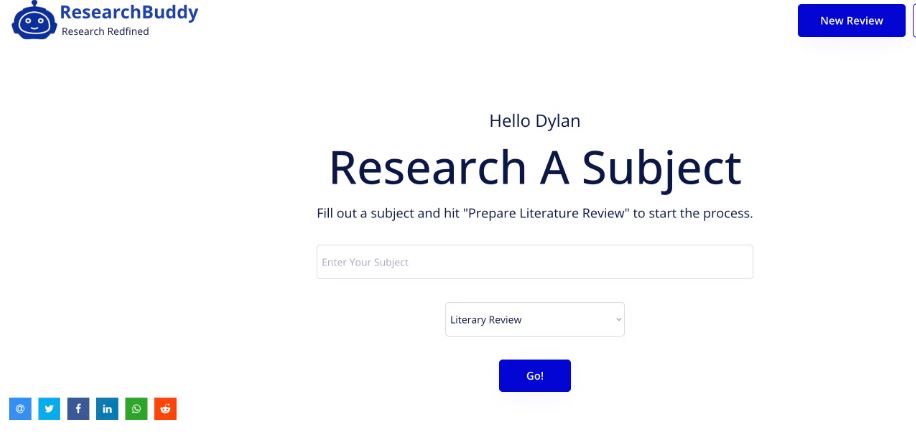
Cambrian
CambrianCopilot is an AI-driven research platform specifically designed to support machine learning (ML) researchers in conducting literature reviews and staying up-to-date with the latest advancements in the field. This AI assisted literature review tool automates the process of discovering, organizing, and analyzing research papers, making it easier for ML professionals to manage large volumes of academic content.
Why it’s great: It offers access to over 240,000 ML papers and generates research insights effortlessly.
How to use it: Search by keywords or topics, bookmark papers, and share findings with your network.
Key features:
- Daily updates on new papers.
- Visual research insights.
- Collaborative sharing options.
Best for: ML researchers and tech professionals.
DistillerSR
DistillerSR is a fully automated AI tool designed to streamline and enhance systematic literature reviews. Built with a strong focus on evidence-based research, it ensures that every step of the review process is efficient, precise, and reliable.
Why it’s great: This assisted literature review tool is built for evidence-based research, ensuring high precision and reliability.
How to use it: Log in, import references, and let DistillerSR handle the review and analysis process.
Key features:
- Full automation of review stages.
- Evidence-based accuracy.
- Streamlined project management.
Best for: Medical and pharmaceutical researchers.
DistillerSR’s focus on accuracy makes it a staple in regulated fields.
RatingHub
RatingHub is an assisted literature review tool that syncs and analyzes reviews from platforms like Google, TripAdvisor, and Yelp. While it’s primarily designed for businesses, its ability to synthesize customer feedback makes it a valuable tool for market researchers studying trends in consumer behavior.
Why it’s great: While not a traditional literature tool, its review synthesis skills can aid business researchers.
How to use it: Connect your channels, and RatingHub will sync reviews and generate personalized responses.
Key features:
- Multi-channel review syncing.
- Performance tracking visuals.
- AI-generated response suggestions.
Best for: Business researchers studying customer feedback trends.
Its cross-platform approach offers a fresh angle for literature reviews in market research.
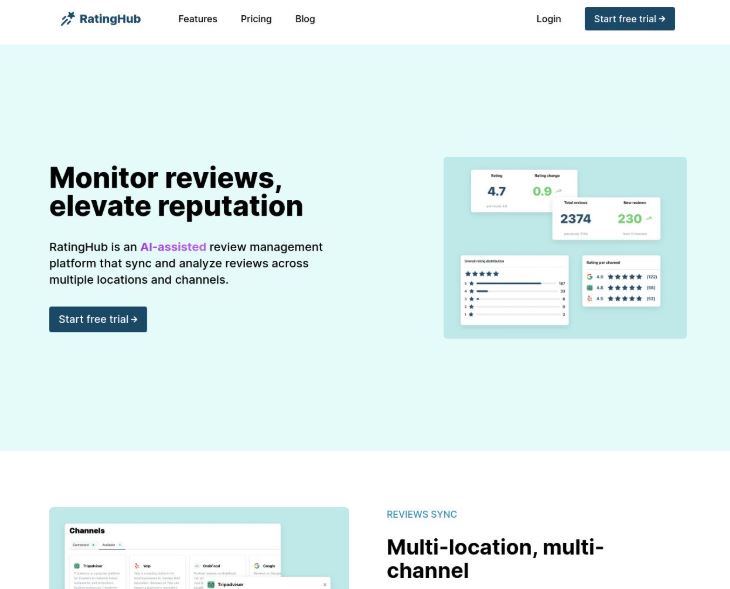
FeedLens
FeedLens is a specialized AI tool that analyzes mobile app reviews, categorizing feedback to provide actionable insights. While its main function is customer review management, it can also be used by tech researchers studying user experiences in digital products.
Why it’s great: This assisted literature review tool is a niche tool that can double as a literature review aid for app-related studies.
How to use it: Upload app reviews, and FeedLens categorizes them and suggests responses.
Key features:
- Contextual AI responses.
- Competitive analysis tools.
- Comprehensive analytics.
Best for: Tech researchers focused on user feedback.
FeedLens proves AI’s versatility beyond academic papers.
Review Insights Pro
Review Insights Pro is a customer review management tool that uses AI-driven sentiment analysis to help businesses understand user feedback and make data-driven decisions.
Why it’s great: Its intuitive interface and Chrome extension make it accessible for review synthesis.
How to use it: Sign up, analyze reviews, and use insights to inform your research or business decisions.
Key features:
- Advanced sentiment analysis.
- Topic and keyword extraction.
- Pre-crafted response templates.
Best for: Small business researchers or marketers.
AI Review Reply Assistant
AI Review Reply Assistant is a time-saving AI tool that generates tailored responses to customer reviews. This assisted literature review tool is particularly useful for businesses and researchers handling multilingual user feedback.
Why it’s great: Its multilingual support and instant response generation save time.
How to use it: Paste a review, tweak the AI-generated response, and integrate it into your workflow.
Key features:
- Instant, customizable responses.
- Multilingual capabilities.
- API integration options.
Best for: Researchers analyzing feedback or reviews in multiple languages.
Its adaptability ensures consistent quality across contexts.
What Is A Book
What Is A Book, also known as The Anti-Book Store, is a unique AI-driven platform that challenges traditional approaches to literature reviews by promoting unconventional research methods.
Why it’s great: It challenges traditional review norms, encouraging creative synthesis.
How to use it: Explore its negative reinforcement literature to spark new research angles.
Key features:
- Focus on open-minded literature.
- Creative content generation.
- A unique perspective on reviews.
Best for: Humanities researchers seeking inspiration.
This assisted literature review tool’s quirky approach can refresh your literature review process.
SciSpace
SciSpace combines literature review generation, PDF analysis, and citationorseless AI tools like Copilot to assist with writing and citation management.
Why it’s great: It’s a comprehensive tool that simplifies every step of the research process.
How to use it: Upload papers, ask questions, and get summaries or citations instantly.
Key features:
- Access to millions of papers.
- AI-driven summaries and paraphrasing.
- Citation generation in multiple styles.
Best for: Anyone needing a versatile, all-purpose research assistant.
SciSpace has been my go-to for organizing complex reviews, it’s like having an expert co-author!

Why Use AI Assisted Literature Review Tools?
Before we jump into the list, let’s understand why AI assisted literature review tools are game-changers. Manually sifting through hundreds of papers, extracting key insights, and synthesizing findings can take weeks or even months. AI tools automate these steps, cutting down research time while maintaining quality. They help you:
- Find relevant papers quickly.
- Summarize complex studies in seconds.
- Organize data for easy analysis.
- Enhance collaboration across teams.
With the right AI assisted literature review tool, you can focus on critical thinking and innovation rather than getting bogged down in repetitive tasks.
Final Thoughts: Revolutionize Your Research in 2025
AI assisted literature review tools are transforming research by making it faster, smarter, and more accessible. From drafting reviews in seconds (Seamless) to automating systematic reviews (Rayyan) and offering all-in-one solutions (SciSpace), these tools cater to every researcher’s needs. Try one of these tools today and experience the future of research firsthand.

